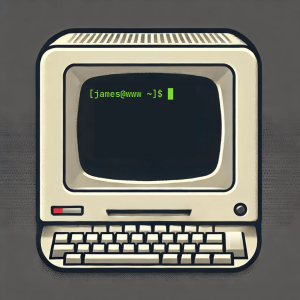Image by BusinessSarah, made available under CC-BY.
Copyrights and Trademarks are two entirely different things, but they are both referred to as “intellectual property”. I am not a lawyer, but I do know enough to distinguish the two of them. I think everyone should, as it seems an often misunderstood topic.
So, here’s the short version.
Both copyrights and trademarks are artificial monopolies. Only the copyright holder has permission to copy, distribute, and build on a copyrighted work, and the right to give permission to others to do the same. If you aren’t the copyright holder and you do one of these things with a copyrighted work without permission, you are breaking the law—this is called Copyright Infringement. Copyright applies to many creative works, like books, games, software, and songs.
You can’t copyright ideas, general character traits, or titles. The work needs to be substantial in some way in order to be copyrightable.
Copyright was first introduced into law some several hundred years ago, but it wasn’t as powerful back then. Originally, the copyright holder had a 14-year monopoly which they could renew for another 14 years and no more. After that time, the monopoly expires, and the work enters the public domain. There are no copyright holders for a public domain work, and anyone has permission to exercise the rights copyright grants you.
Today, a work’s copyright lasts for the life of the author plus an additional 70 years before it enters the public domain. All works are protected by copyright implicitly since 1989; you no longer need to register your work with a government office. It's worthwhile to register your copyright anyway if you're in the US, as it gives you the right to pursue someone for copyright infringement.
When you hold the rights to a trademark, you are the only one who can use the mark described by that trademark. For example, you might be the only one who can use the Nintendo® name for a website, podcast, book, or whatever product you’re selling. You need to explicitly register trademarks with a government office. Trademarks don’t expire.
To understand how the two interact, let's examine Tarzan:
Many Tarzan novels have entered the public domain. This means anyone can legally create new works based on these stories and characters. However, Edgar Rice Burroughs Inc. holds a registered trademark to the Tarzan name. While you can publish your new Tarzan story, you can’t publish it using the Tarzan name. If you tried, Edgar Rice Burroughs Inc. would pursue you for trademark infringement.
This is compared to Sherlock Holmes, where no one holds a registered trademark on anything associated with the series, so anyone can create new Sherlock Holmes stories using that name.
And oh, patents are different too. But that will remain the subject of another post. This post is intended as a brief introduction only to the distinct concepts of Copyrights and Trademarks.
This article was written by James North and is made available under a Creative Commons Attribution-NonCommercial-ShareAlike 4.0 International License. Share it and build on it, but don't exploit it for commercial purposes.
Read the legalcode for the full terms.


